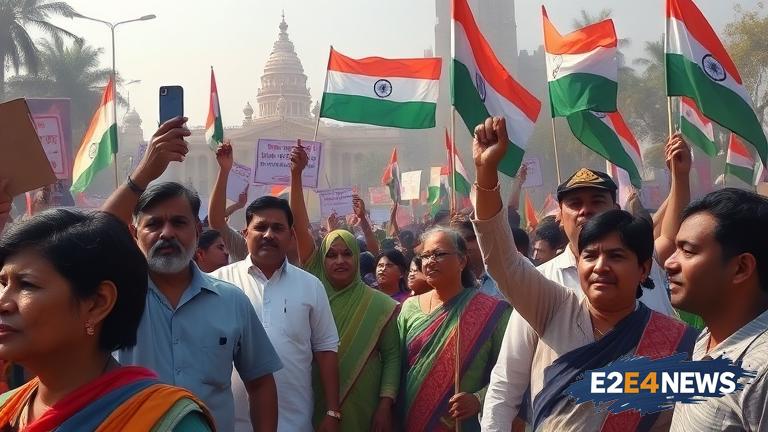A recent statement made by Syeda Hameed, a former member of the Planning Commission, has sparked widespread protests in India. Hameed’s remark that Bangladeshis can stay in India has been met with fierce opposition from various groups. The comment was made during a seminar, where Hameed expressed her views on the issue of Bangladeshi immigrants in India. However, her statement was not well-received by the audience, and soon, protesters entered the venue, disrupting the event. The protesters were reportedly from a right-wing group, which has been vocal about its opposition to the presence of Bangladeshi immigrants in India. The group claims that the influx of immigrants is putting a strain on the country’s resources and posing a threat to national security. Hameed’s comment was seen as an endorsement of the immigrants’ presence, which further fueled the protesters’ anger. The incident highlights the sensitive nature of the issue, which has been a topic of debate in India for several years. The Indian government has been grappling with the problem of illegal immigration from Bangladesh, with many calling for stricter border controls and deportation of those living in the country without proper documentation. However, others argue that the immigrants are fleeing persecution and poverty in their home country and deserve to be treated with compassion. The issue has also been politicized, with some parties using it as a rallying cry to mobilize support. The protests against Hameed’s remark are a testament to the strong emotions evoked by the issue. The incident has also raised questions about the role of public figures in shaping the narrative around sensitive topics. Hameed’s comment has been criticized by many, who argue that it was irresponsible and insensitive to the concerns of Indian citizens. The former Planning Commission member has been known for her liberal views, but her remark has been seen as a misstep by many. The protests have also highlighted the need for a more nuanced discussion around the issue of immigration. Rather than resorting to simplistic solutions, there is a need for a more thoughtful and multi-faceted approach that takes into account the complexities of the issue. This includes addressing the root causes of migration, such as poverty and persecution, as well as providing support to those who are fleeing their home countries. The Indian government must also take a more proactive role in addressing the concerns of its citizens, while also upholding the principles of compassion and humanity. The incident has sparked a wider debate about the role of free speech and the limits of public discourse. While Hameed’s remark was seen as an exercise of her right to free speech, it has also been criticized for being insensitive and irresponsible. The incident highlights the need for public figures to be more mindful of the impact of their words and to engage in more thoughtful and respectful dialogue. The protests have also raised questions about the safety and security of public events, with many calling for greater measures to be taken to prevent disruptions. The incident has sparked a wider conversation about the need for greater tolerance and understanding in public discourse. Rather than resorting to violence and intimidation, there is a need for more respectful and constructive dialogue. The issue of immigration is a complex and sensitive one, and it requires a more nuanced and thoughtful approach. The Indian government and public figures must work together to create a more informed and empathetic public discourse, one that takes into account the complexities of the issue and the concerns of all stakeholders.
